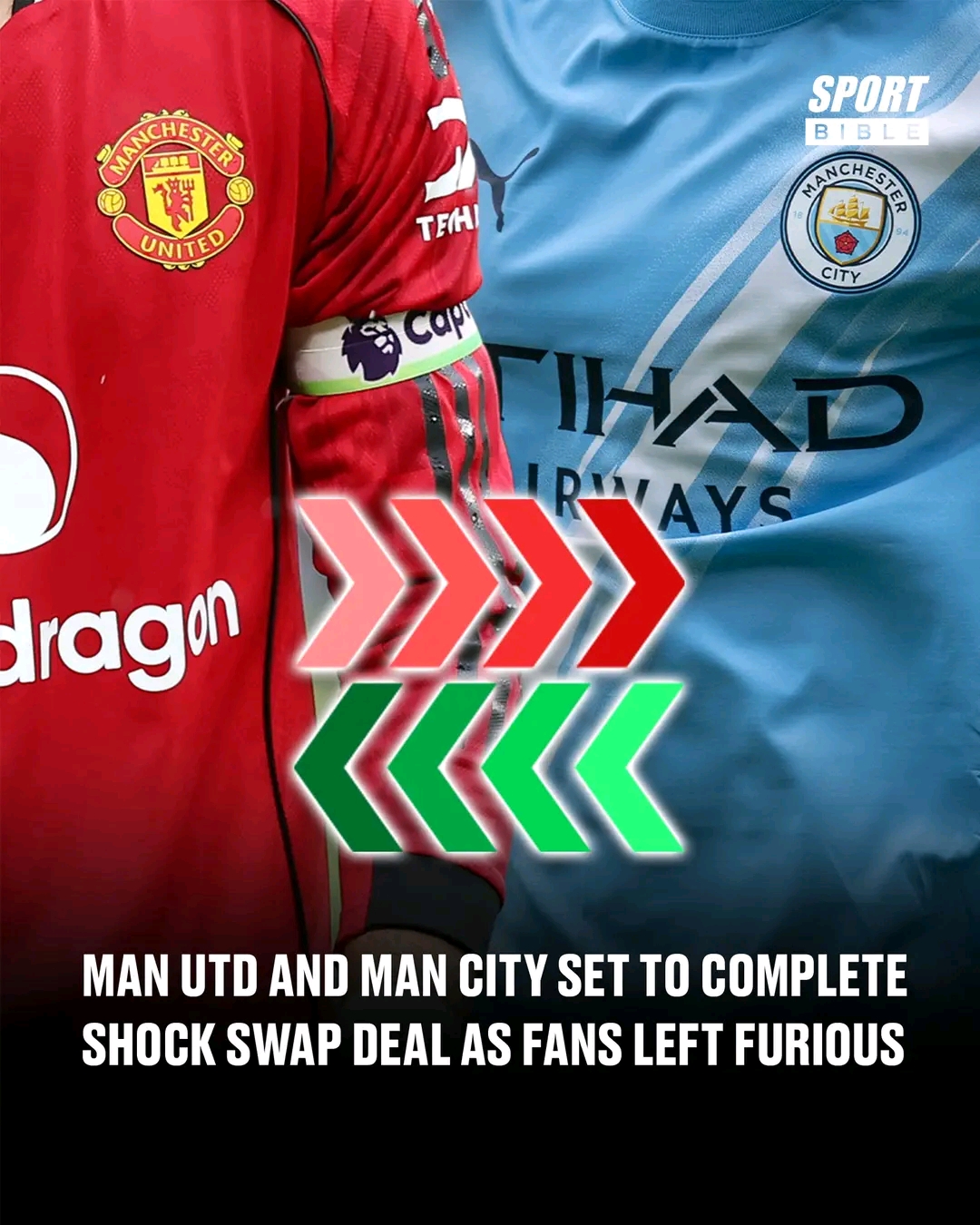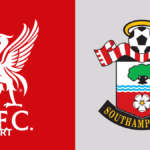Man Utd and Man City Set to Complete Shock Swap Deal as Fans Furious

The football world woke up to shocking news that sent a wave of anger, confusion and heartbreak across one of the biggest fanbases in England. On a quiet Thursday morning, as the clock ticked closer to the end of the Women’s Super League transfer window, whispers started spreading like wildfire. Manchester United and Manchester City, two of the fiercest rivals in the history of English football, were not only talking to each other but were about to complete a direct swap deal involving two of the brightest stars in the women’s game. For fans, it was unthinkable. For many, it felt like betrayal. And for others, it was yet another sign that something was badly wrong behind the scenes at Manchester United Women.
The deal was set to be confirmed before the 11pm deadline. Grace Clinton, Manchester United’s highly talented young midfielder, the player many supporters believed should be the heartbeat of their team for the next decade, was on her way to the blue half of Manchester. In exchange, Jess Park, Manchester City’s midfielder, would move the other way and join United. It was not a simple player-for-player swap. Reports said that City would also pay a higher fee to get Clinton, showing just how much they valued her. To make it worse for United fans, Clinton had only one year left on her contract, meaning the club risked losing her for free next summer if they didn’t sell now. But instead of this calming the storm, it only made the fury worse. Supporters asked why the club had allowed one of their brightest stars to enter the final year of her deal without sorting a long-term contract.
The contrast between what fans wanted and what the club delivered could not have been more painful. Over the past few seasons, Manchester United Women had already lost some of their biggest names. Alessia Russo, Ona Batlle, Mary Earps – all gone, and all left on free transfers. Each exit had left wounds in the fanbase. And now, instead of finally building a squad around their young talents, the club was once again letting another gem slip away. Grace Clinton, who had just enjoyed a breakthrough summer with England at Euro 2025, who had played in five of the six matches and impressed as an energetic substitute, was now about to wear the sky blue shirt of their biggest rivals.
One fan summed up the mood in raw, furious words: “Losing Grace Clinton would be a disaster! She should be the player this team is built around!!!!” The anger echoed across social media, fan forums, and even matchday WhatsApp groups. Another wrote: “Stunned that Man Utd have allowed Grace Clinton to go to Man City. One of the most promising talents in the country. Ridiculous.” And a third fan, tired of the same mistakes, questioned the ownership directly: “Why are we not giving players lengthy contracts, or is the ladies’ team not part of the INEOS plan?”
That last comment struck a nerve. Ever since Sir Jim Ratcliffe’s INEOS group took partial control of Manchester United, fans had hoped for serious investment in the women’s team. They expected professionalism, planning, and ambition. Instead, they saw history repeating itself, the same mistakes being made again and again. For many fans, selling Clinton to City was not just about losing a player – it was about losing belief.
The irony was that this transfer saga was unfolding during one of the most exciting transfer windows in women’s football history. Arsenal had broken records by signing Olivia Smith, the young Canadian forward, for over a million pounds – the first ever million-pound player in women’s football. Arsenal had also pulled off another huge signing by snapping up England’s Euro 2025 hero Chloe Kelly, who had let her Manchester City contract run down. Chelsea, the reigning champions, had flexed their power by signing Australian right-back Ellie Carpenter from Lyon. The women’s game was growing, moving fast, and becoming more competitive than ever. Yet in the middle of all this, Manchester United looked like the club that couldn’t protect its own jewels.
Grace Clinton had joined United from Everton in 2022. She was only 22 years old now, but already one of the most exciting midfielders in the country. Last season, she scored eight goals in 20 appearances, a record that showed both her attacking drive and her ability to step up in big moments. Her energy, creativity, and eye for goal had made her a favourite among fans. Many believed she was the perfect player to build a team around. She had grown into the England setup too, and her performances at Euro 2025 suggested that she was ready to explode onto the world stage. And now, instead of that future happening at Manchester United, it would happen at Manchester City.
Jess Park, the player moving the other way, was no small name either. She had been with Manchester City since her teenage years, joining the club when she was just 15. She had been part of their setup for eight years, growing into one of their most trusted midfielders. For City fans, seeing her go was painful. Former captain Steph Houghton voiced the feelings of many supporters when she told BBC Radio 5 Live: “That deal has massively surprised me. I look at Jess Park as a Manchester City player who’s been there for eight years … I want to keep the players that we’ve had since they’ve been 15, 16 years old.” Her words carried weight because Park had been seen as part of City’s DNA, a player who understood the club and represented its identity.
But Houghton also admitted something else, something important: both Park and Clinton needed regular game time to cement their places in the England squad under Sarina Wiegman. England’s manager had made it clear that players had to play regularly for their clubs if they wanted to feature for the Lionesses. In that sense, maybe both players would benefit from this deal. Clinton would get a fresh start at City, a team that valued her highly. Park would get a chance to be central at United, a club desperate for a leader in midfield. Different profiles, as Houghton said, but both influential in their own ways.
Still, for United fans, this explanation did not ease the pain. They saw their club weakening and their rivals strengthening. They saw another season of frustration waiting ahead. And they saw their club being left behind at a time when Arsenal, Chelsea, and City were all pushing forward. For them, the swap deal was not about balancing squads. It was about power. It was about who was moving forward and who was stuck in the past.
The fury reached such a point that many fans began recalling painful memories. When Alessia Russo left for Arsenal, the disappointment was sharp. When Ona Batlle returned to Barcelona, it felt like another wound. When Mary Earps walked away on a free, it was almost unbearable. And now, losing Grace Clinton to City, and in such a direct way, to their local rivals, felt like the ultimate insult.
But behind all the noise, there were also voices trying to stay calm. Some argued that Jess Park could actually thrive at United. She had shown flashes of brilliance in her career, with great technical skills, intelligence on the ball, and the ability to link midfield and attack. At only 23, she was still young enough to grow. Maybe, they said, this deal could end up being more balanced than it looked on paper. But even those voices admitted that the emotional weight of losing Clinton to City would take a long time to heal.
For Manchester City fans, the mood was mixed too. Many were excited at the thought of adding Grace Clinton to their squad. They saw her as a future star, a player who could light up the midfield for years to come. But they also felt sadness at losing Jess Park, a player who had been part of their family since she was a teenager. For them, it was a bittersweet moment, one that showed the ruthless nature of football even in the women’s game.
As the deadline loomed, the story grew bigger and bigger. The media covered it from every angle. Commentators debated who got the better deal. Fans argued online. Former players gave their opinions. And everyone waited for the official announcement. For some, it was just another transfer. For others, it was a symbol of something deeper – the way the women’s game was changing, the way money and power were reshaping old loyalties, and the way Manchester United seemed to be losing touch with its own future
By Thursday night, when the paperwork was finally done, the emotions were raw. Grace Clinton was officially a Manchester City player. Jess Park was officially a Manchester United player. And the rivalry between the two clubs had found another chapter, one that would be remembered for years. The first derby of the season suddenly became even more explosive. Fans on both sides circled the date. For Clinton, wearing City blue against her old club would be emotional. For Park, stepping onto the pitch at Old Trafford as a United player after years at City would be just as intense.
The swap deal might have been about football, contracts, and tactics. But for the fans, it was about pride, loyalty, and identity. It was about what their clubs stood for. And that is why, long after the ink had dried on the contracts, the anger of Manchester United supporters continued to burn.
Because in their hearts, many believed this simple truth: Grace Clinton should never have been allowed to leave. And certainly not to Manchester City.















